How to avoid the “large-scale impact” pitfall
Applying willpower to have a “wider than team” impact on an organization is a recipe for burnout! Check the “Local Actions, Global Impact” strategy instead.
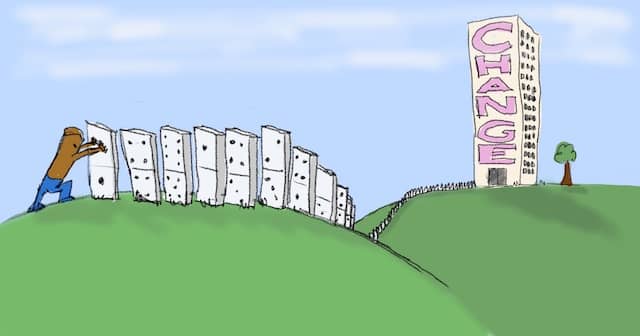
I used to share and bring new knowledge through the organizations I have been in. But in my new job, it looks like no one cares!
Sadly, I spend less and less time coding for the project. But I find that people respect coaches who are in the trenches with them!
Damn, I again got caught in an abstract ‘large-scale agile transformation’ discussion… This leaves me anguished every time!
As change agents, it’s natural to wonder how we could have a broader impact on the organization where we work. Isn’t our goal to transform how people work?
Unfortunately, you are among many parameters that influence an organization’s evolution. Focusing on wide-scale organizational transformation is no guarantee for results. In fact, this behavior can lead to exhaustion!
Wouldn’t it be great if you had the formula to refill your energy for sharing with people? Whatever is the organization evolving into?
Let’s see how to avoid the trap and still make a difference.
“Local Action, Global Impact”
I borrowed this motto from environmental protection movements. I recently read Let my people go surfing by Yvon Chouinard, the founder of Patagonia. The company has been subsidizing environment-protecting activists almost since its creation. One key point they make when selecting a group to support is that it is local and does local actions. Here is why:
- These people know the situation better.
- They have “skin in the game” to protect their homeland.
- They will be able to defend their cause better.
- Small groups waste less time and money on bureaucracy.
- As small wins pill up, they tilt the public opinion and the law.
Let’s copy these hardcore change agents!
Change only happens one person at a time, as they switch to a different point of view. Change happens locally, by nature! Simon Sinek supports this idea in How to Make a Cultural Transformation. He explains that the only sure way he knows to make cultural change is to win over 15% of people. You do this by meeting them and making their lives better.
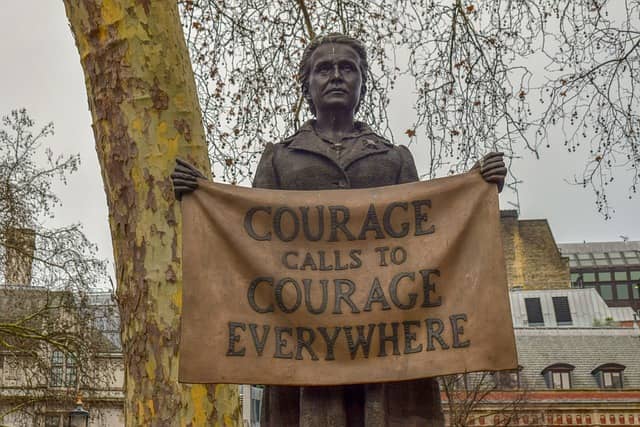
It means spending as much time as possible working with or for teams. It also means limiting the energy we burn for “large-scale agile transformation.” It’s too easy to get caught up in this topic. I try to remember to reassess my priorities regularly. I adapt whenever I see that I am disconnecting from teams and talking about change that I cannot control!
Not only does the “Local actions, Global change” strategy works, but it will also make your life lighter!
- First, you will stop worrying about the unachievable goal of “large-scale transformation.” Instead, enthusiastically work with people and consider broad change a bonus.
- Second, you don’t have to ask for permission to bring change! Just make things better for you and the people around you.
Local Actions
If you had not yet understood 😉: Local actions are where you should invest your time and energy!

Examples of local actions
The prominent local actions are about helping team members with their day-to-day issues. For example:
- Running whole-team workshops to tackle particular topics and to break silos. Check out 5 Whole-Team Workshops To Increase Developers’ Role In Sprint Planning. (We have recently experimented with a workshop to build quality views, let me know if you want me to write about it)
- Facilitating mob programming or coding dojo sessions around legacy code or maintainable testing challenges.
Preparing for any of the above also counts as local action. Be careful to get regular feedback and remember that you should be slightly embarrassed the first time you run the session.
You may have heard me say: If you're not embarrassed by the first version of your product, you've launched too latehttps://t.co/r4JyKzzyWO
— Reid Hoffman (@reidhoffman) March 29, 2017
Local action is not limited to teams! Sessions with managers or product managers can be local too. However, keep the focus on their behavior and not that of others!
Another local action is to be present and embody XP’s calm and steady rhythm! This behavior has a lot more impact than we usually think!
You can also host ‘open sessions,’ which anyone from the organization can join! These sessions can be code katas or educational workshops. It’s an excellent way to generate awareness, connect, and provide help.
The direct benefits of local actions
The main obvious benefit of local actions is that we can directly improve some people’s lives! Many developers told me how learning XP practices changed their work life. Their days had become more effective, engaging, and, most of all, calmer.
So, keep in mind that XP improves people’s lives. Focus on local actions. Your energy will follow! Plus, people will listen to you if you remain optimistic!
From another perspective, every local action is a potential conference talk or workshop. Sending proposals or attending meetups is another chance to improve developers’ lives.
Finally, the local action strategy is perfect if you are an embedded coach or a developer! All local actions can be part of your day-to-day job. Make sure to ‘sell’ it the right way:
- Organize problem-solving workshops to make your team more effective.
- Run mob or kata programming sessions to increase the skills of newcomers (and others).
- Run sessions at public conference events to help your organization with hiring.
Global Changes

Focusing on local actions keeps us energetic and optimistic. Moreover, local efforts maximize our long-term chances of inspiring others and triggering more change! Here are examples of broad changes that local actions can trigger.
I’ve said above that XP practices equip developers with a calmer and more productive work life. Less stress at work also means a happier family at home! Who knows? You may contribute to saving couples and healthier kids through technical coaching!
You might inspire others to start local actions too! Don’t forget that any movement begins with a first follower.
When the people you coach move to a new team or company, they will also impact those around them! Maybe they will, in turn, trigger large-scale changes later.
Finally, it is possible that your coaching leads to organization-scale change. It’s a long shot: a lot is outside your control, especially in large organizations. So, please don’t count on it! Yet, if the organization is supportive and you get enough “followers,” you have a chance! Be patient.
Again, all these are bonuses! Don’t expect them. You can expect a local impact if you stay focused on local actions and maintain your enthusiasm. Any local result already has enormous value! And wider change will happen from time to time. So celebrate your local acts, and share stories when a broader impact happens.
Make it a habit
XP started as a local experiment in the C3 project. If the goal had been to spread to every dev team, XP would be a failure. Yet, XP has changed the face of the entire industry. Practices like unit testing and Continuous Integration have become standards. Others, like pair programming, are still spreading. So let’s stick to our local actions! Who knows what will happen?
Here is my final trick to remember to “Act Local.” First, print and keep a large calendar on your desk (you’ll find plenty online). Then, every work day, just before you leave, write down three local actions you did.
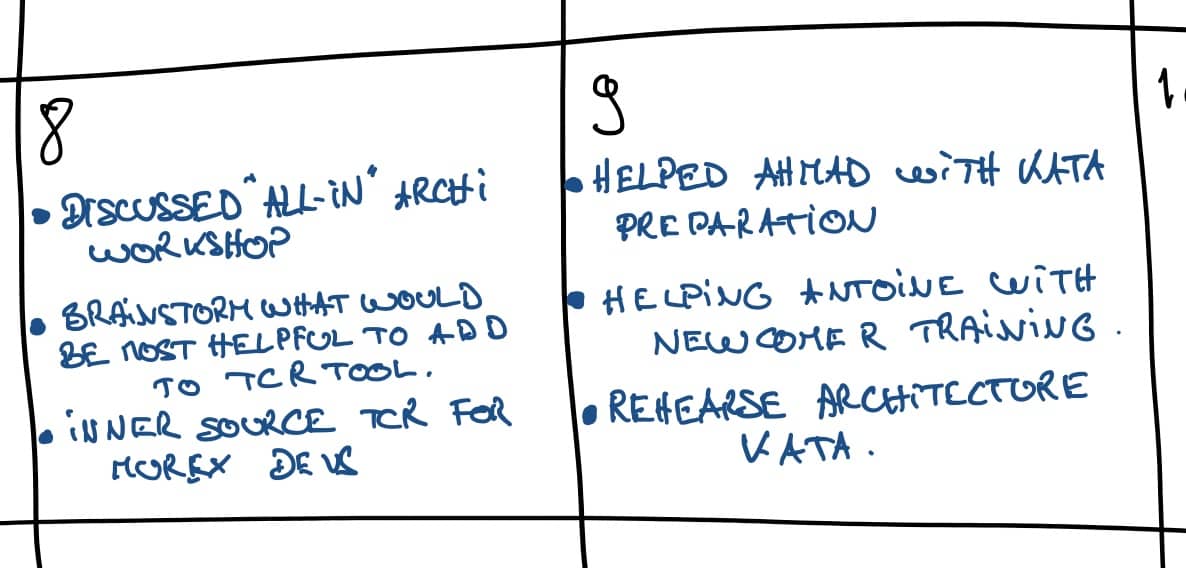
It’s a bit like Self-Kudos. Don’t be falsely modest: you are only writing for yourself! Once you are done, step back, and be proud of what you did!
Finally, read back through all the actions you did when you need to lift your mood!
You might also love…
- 3 Questions To Let-Go Technical Agile Coaching Measures
- How to measure (and report 😢) your tech agile coaching effectiveness?
- 5 technical agile coaching tips to fight exhaustion from laggards
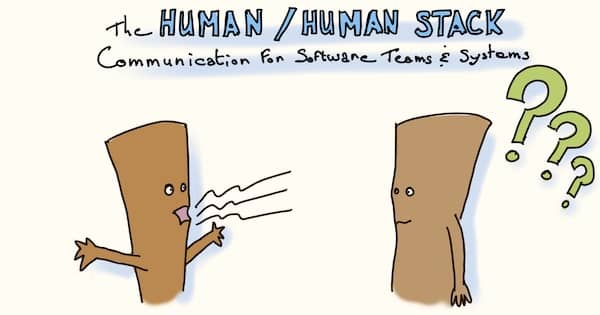

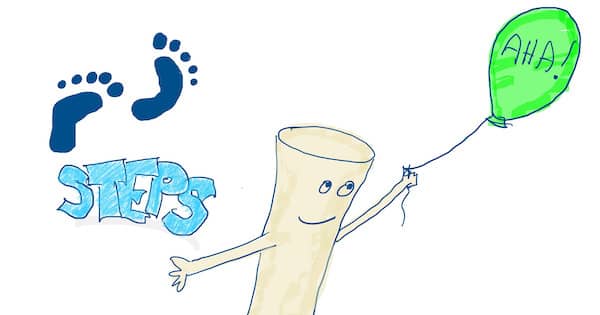
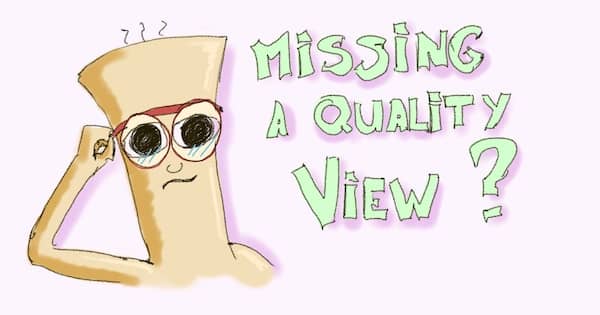
Leave a comment